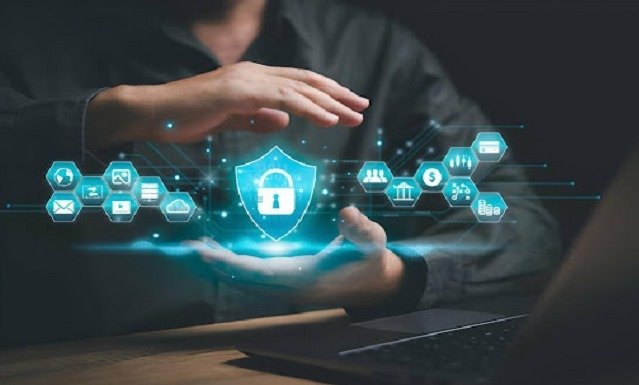In today’s hyper-connected world, where online identities often reveal more than resumes, cyber background checks have emerged as a critical tool for businesses, HR departments, and even individuals. Whether you’re hiring a new employee, screening a business partner, or verifying an online profile, the digital footprint of a person can tell you volumes beyond what’s on paper.
But what exactly is a cyber background check? How does it differ from traditional checks? And why is it becoming essential in modern due diligence?
In this article, we’ll explore everything you need to know about cyber background checks, including how they work, who needs them, legal considerations, and how to implement them responsibly.
What Is a Cyber Background Check?
A cyber background check involves analyzing a person’s online presence, digital behavior, and cyber history to assess their identity, credibility, and potential risks. It goes beyond conventional background checks (like credit reports or criminal history) by diving into:
Social media profiles
Online publications and blogs
Forum or comment activity
Dark web mentions
Data breaches and leaked credentials
Cybersecurity red flags (e.g., association with malicious activity)
These checks are conducted using automated tools, artificial intelligence, and manual review methods. The goal is to paint a clearer picture of a person’s digital reputation and online risk profile.
Why Are Cyber Background Checks Important?
The digital world is now deeply intertwined with our personal and professional lives. Here are some reasons why cyber background checks are increasingly necessary:
1. Enhanced Risk Management
Traditional background checks may miss online threats like:
Extremist views shared on social media
Involvement in online scams or shady platforms
Credential leaks from past data breaches
Cyber checks help employers or partners make safer decisions.
2. Online Reputation Matters
A person’s digital footprint can affect a company’s brand image. A single controversial post or toxic online behavior can cause PR nightmares.
3. Remote Work and Online Collaboration
With remote teams and gig workers, traditional face-to-face vetting is no longer practical. Cyber checks offer a remote-friendly verification process.
4. Prevent Insider Threats
Organizations can assess if an individual has previously been involved in:
Corporate espionage
Cyberbullying
Leaking sensitive data
Who Should Use Cyber Background Checks?
Cyber background checks aren’t just for Fortune 500 companies. They’re useful in many scenarios:
Use Case Description
Employers Screen job applicants for potential risks or online behavior that contradicts company values.
Landlords Ensure tenants don’t have online histories indicating fraud or criminal behavior.
Investors/Partners Verify the reputation and online footprint of business partners or founders.
Online Daters Safely assess the identity and integrity of people met through dating platforms.
Parents Check the digital behavior of babysitters, tutors, or coaches.
What Do Cyber Background Checks Include?
A comprehensive cyber background check typically includes:
✅ Social Media Analysis
Monitoring platforms like Facebook, X (Twitter), LinkedIn, Instagram, TikTok, Reddit, etc., for:
Hate speech
Violent or inappropriate content
Political extremism
Drug references
Criminal indications
✅ Data Breach History
Checking if the subject’s email or phone has been involved in any data breaches using services like “Have I Been Pwned.”
✅ Dark Web Scans
Searching dark web forums and black-market listings for:
Stolen credentials
Identity theft
Fraudulent activity
✅ Online Behavior & Reputation
Reviewing:
Blog posts, comments, reviews
Participation in controversial forums
Online scams or complaints
✅ Cybersecurity Compliance
In B2B scenarios, assessing:
Digital hygiene
Domain and email security records
History of DDoS attacks or spamming
Is It Legal to Run a Cyber Background Check?
Yes, but with caution. Cyber background checks must comply with privacy laws like:
GDPR (EU)
CCPA (California)
FCRA (USA) – especially if the results are used in employment decisions
Always:
Get the subject’s consent
Be transparent about data sources
Avoid discriminatory or biased assessments
Ensure the check is relevant to the position or relationship
How to Conduct a Cyber Background Check
Here’s a step-by-step guide:
Step 1: Define Your Objective
Why are you running the check? Hiring? Tenant screening? Fraud prevention? This guides the scope of the check.
Step 2: Collect Basic Information
Name, email, usernames, phone number, and location. These identifiers help locate online profiles and mentions.
Step 3: Use OSINT Tools or Services
Use open-source intelligence tools or hire a professional service to scan digital records:
Pipl
Social Searcher
Skopenow
Echosec
Spokeo
PeopleLooker
Step 4: Analyze and Verify
Look for red flags but also verify the accuracy. Some results may be misattributed or outdated.
Step 5: Document and Act
Create a report, ensure it’s stored securely, and make an informed decision based on a combination of data sources.
Future of Cyber Background Checks
As our digital lives expand with technologies like the metaverse, AI avatars, and decentralized identities, the need for cyber background verification will only grow. Future checks may include:
AI-generated deepfake detection
Blockchain-based identity records
Real-time online behavior monitoring
- Conclusion
Cyber background checks are fast becoming an essential part of modern vetting. They provide a deeper, real-time understanding of individuals beyond what traditional checks can offer. However, like any powerful tool, they must be used ethically, legally, and responsibly.
If you’re a business, HR professional, or simply want to protect yourself from online risks, consider implementing cyber background checks as part of your digital due diligence process.

